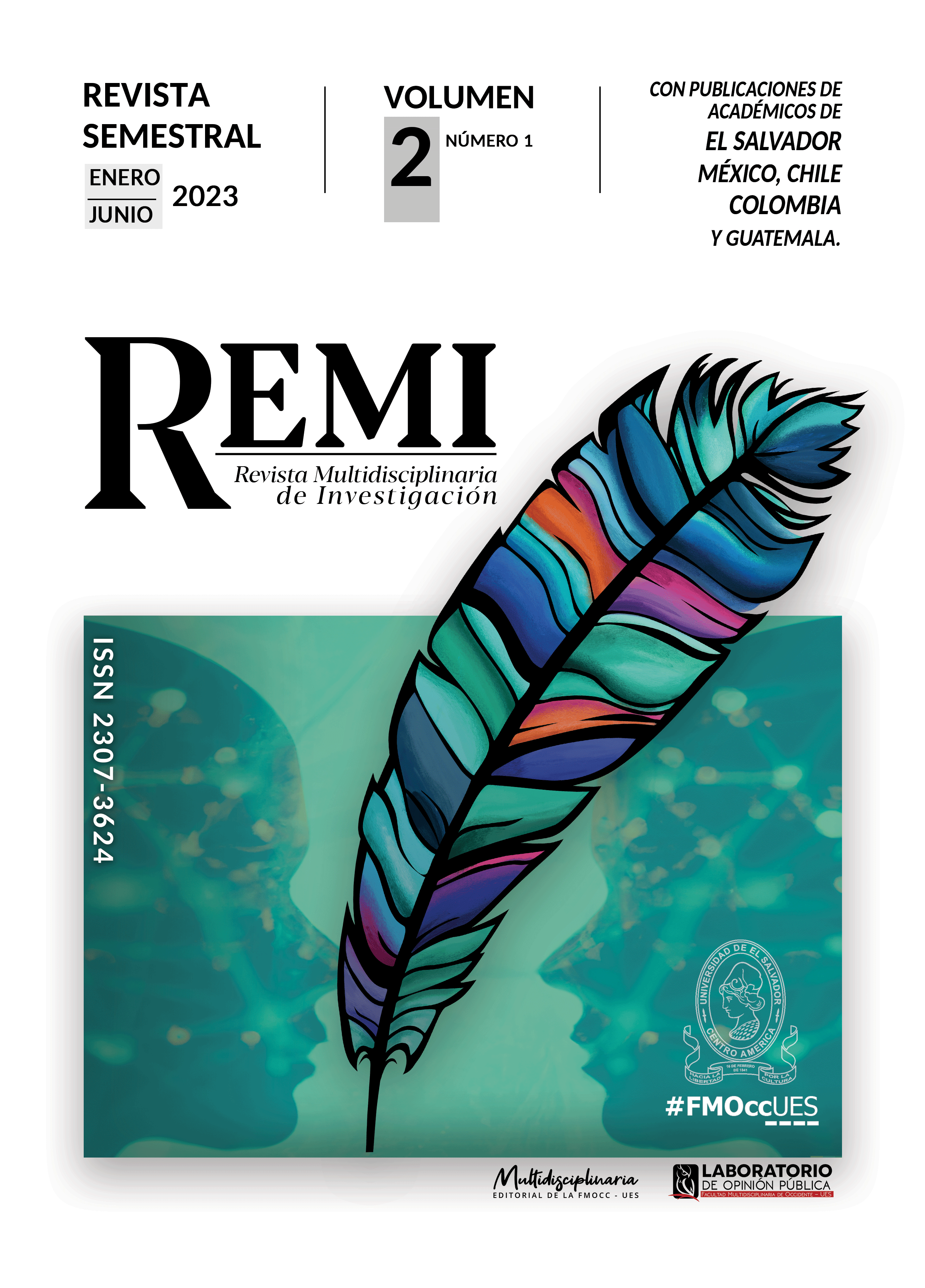Satisfacción con la vida, valores materiales y actitudes de compra. Una revisión sistemática
DOI:
https://doi.org/10.5281/zenodo.8339377Palabras clave:
Satisfacción vital, valores materiales, actitudes hacia la compra, actitudes hacia el endeudamientoResumen
Introducción: la satisfacción vital es una variable que asume especial interés para la comunidad científica, ya que es la dimensión cognitiva del bienestar subjetivo y es fundamental para tener una adecuada salud mental. Objetivo: indagar la evidencia científica donde se aborde la relación de la satisfacción vital con los valores materiales y las actitudes de compra y endeudamiento. Método: se establecieron criterios de búsqueda basados en el tema de estudio, encontrando 176 artículos, de los cuales se hizo un proceso de depuración siguiendo los criterios Prisma-P. Se analizaron 16 artículos que cumplieron los criterios de inclusión, el 64.7% de los artículos se centran en la relación entre los valores materiales y satisfacción vital, por lo que se discute la implicación de estos en las sociedades de consumo. Conclusión: la satisfacción con la vida es una variable que se asocia de forma inversa con los valores materiales, probablemente esto se deba a que los productos pierden su valor de uso y simbólico con el paso del tiempo y la necesidad de seguir acumulando objetos materiales. Existen limitaciones propias de esta revisión sistemática, las cuales se plantean como desafíos para futuras investigaciones.
Descargas
Referencias
Ang, C., Mansor, A. T., & Tan, K.-A. (2013). Pangs of Loneliness Breed Material Lifestyle but Don’ t Power Up Life Satisfaction of Young People : The Moderating Effect of Gender. Social Indicators Research. https://doi.org/10.1007/s11205-013-0349-0
Baker, A., Moschis, G. P., Ong, F. S., & Pattanapanyasat, R. (2013). Materialism and Life Satisfaction: The Role of Stress and Religiosity. THE JOURNAL OF CONSUMER AFFAIRS, 47(3), 548–563. https://doi.org/10.1111/joca.12013
Balikcioglu, B., Arslan, Z., & Balikcioglu, B. (2020). Explaining the link between materialism and life satisfaction: A life course study in Turkey Explaining the link between materialism and life satisfaction: A life course study in Turkey. Journal of Global Scholars of Marketing Science, 30(1), 4–17. https://doi.org/10.1080/21639159.2019.1613911
Baudrillard, J. (2011). La Sociedad de Consumo: Sus mitos, sus estructuras. (2a ed.) Editorial Siglo XXI.
Bauman, Z. (2007). Vida de Consumo. Buenos Aires, Argentina: Fondo de Cultura Económica.
Burroughs, J., & Rindfleisch, A. (2013). Materialism and Well-Being : A Conflicting Values Perspective. Chicago Journals, 29(3), 348–370.
Bustos, S. B., Denegri, M., & Valenzuela, P. S. (2019). Consumo, actitudes hacia el endeudamiento, materialismo e influencia de pares en adolescentes rurales del sur de Chile. INTERDISCIPLINARIA, 36(1), 203–219.
Castellanos, L. M., Sepúlveda, J., & Denegri, M. (2016). Análisis teórico de la relación entre estilos de compra, valores materiales y satisfacción con la vida en la adolescencia. Revista de Psicología y Ciencias Del Comportamiento de La U.A. C.J.S, 7(1), 1–22.
Castellanos, L. M., Denegri, C. M., & Salazar, V. P. A. (2020). Adolescentes chilenos: compra, valores materiales y satisfacción con la vida. Revista Electrónica de Investigación Educativa, 22(e04), 1–11.
Chen, Y., Yao, M., & Yan, W. (2014). Materialism and well-being among Chinese college students: The mediating role of basic psychological need satisfaction. Journal of Health Psychology, 19(10), 1232–1240. https://doi.org/10.1177/1359105313488973
Denegri, M., Vallejos, C., Cerda, M., Figueroa, C., Gacitúa, K. E., Guaiquil, N. M., & Aravena, J. S. (2017). Relación entre actitudes hacia el endeudamiento y discrepancia del yo en estudiantes de pedagogía chilenos Actualidades Investigativas En Educación, 17(3), 1–28.
Denegri, C. M., Aravena, S. J., & Godoy, M. P. (2011). Actitudes hacia la compra y el consumo de estudiantes de Pedagogía y profesores en ejercicio en Chile. Psicología Desde El Caribe, 28, 1–23. https://www.redalyc.org/pdf/213/21320758002.pdf
Denegri, C. M., Del Valle R, C., González G, Y., Etchebar-ne L, S., Sepúlveda A, J., & Sandoval G, D. (2014). ¿Consumidores o ciudadanos?: Una propuesta de inserción de la educación económica y financiera en la formación inicial docente. Estudios Pedagógicos (Valdivia), 40(1), 75–96. https://doi.org/10.4067/S0718-07052014000100005
Denegri, C. M., García, J. C., González, R. N., & Aravena, S. J. (2014). ¿Educadores o Consumidores? Discrepancia del Yo, consumo y valores materiales en estudiantes chilenos de Pedagogía. Revista Actualidades Investigativas En Educación, 14(2), 1–29. https://www.redalyc.org/articulo.oa?id=44731371013
Dittmar, H. (2005) Compulsive buying – a growing concern? An examination of gender, age, and endorsement of materialistic values as predictors. British Journal of Psychology, 96, 467–491. doi:10.1348/000712605X53533
Godoy, M. P., Sepúlveda, J., Araneda, L., Canario, R., & Fonseca, J. (2018). Actitud hacia el consumo, ahorro y endeudamiento en titulados de una universidad pública del sur de Chile. Interdisciplinaria, 35(2), 511–525. https://www.redalyc.org/articulo.oa?id=18058785016
Iannello, P., Sorgente, A., & Lanz, M. (2020). Financial Well - Being and Its Relationship with Subjective and Psychological Well - Being Among Emerging Adults : Testing the Moderating Effect of Individual Differences. Journal of Happiness Studies, (0123456789). https://doi.org/10.1007/s10902-020-00277-x
Kasser, T., Rosenblum, K. L., Sameroff, A. J., Deci, E. L., Dittmar, H., Dungan, N., & Hawks, S. (2013). Changes in materialism , changes in psychological well-being : Evidence from three longitudinal studies and an intervention experiment. https://doi.org/10.1007/s11031-013-9371-4
Lai, C. (2010). How Financial Attitudes and Practices Influence the Impulsive Buying Behavior of College and University Students. Social Behavior and Personality, 38(3), 373-380. https://doi.org/10.2224/sbp.2010.38.3.373
Lipovetsky, G. (2007). La felicidad paradójica. Ensayo sobre la sociedad de hiperconsumo. Editorial Anagrama.
Luna, A., R. & Quintanilla, P., I. (2000). El modelo de compra AC B. Una nueva conceptualización de la compra por impulso. ESIC Market, 106, 151-163.
Moher, D., Shamseer, L., Clarke, M., Ghersi, D., Liberati, A., Petticrew, M., … Group, P. (2015). Preferred reporting items for systematic review and meta-analysis protocols (PRISMA-P) 2015 statement. BioMed Central, 4(1), 1–9.
Moreta-Herrera, R., López-Calle, C., Gordón-Villalba, P., Ortíz-Ochoa, W., & Gaibor-González, I. (2018). El bienestar subjetivo, psicológico y social como predictores de la salud mental en ecuatorianos. Actualidades en Psicología, 32(124). https://doi.org/10.15517/ap.v32i124.31989
Moreta Herrera, R., Gaibor Gonzalez, I., & Barrera, L. (2017). El bienestar psicológico y la satisfacción con la vida como predictores del bienestar social en una muestra de universitarios ecuatorianos. Salud & Sociedad, 8(2), 172–184. https://doi.org/10.22199/S07187475.2017.0002.00005
Ortiz, E. S., Lobos, G., & Guevara, D. (2019). Factores Determinantes del Bienestar Financiero y su Relación con la Calidad de Vida en una Muestra de Profesionales de Determining Factors of Financial Well-being and its Relation to Quality of Life in a Sample of Professional Workers of Guayaquil , Ecua. Información Tecnológica, 30(1), 121–132. http://dx.doi.org/10.4067/S0718-07642019000100121
Otero-lópez, J. M., & Villardefranco, E. (2011). MATERIALISMO Y ADICCIÓN A LA COMPRA. Boletín de Psicología, 103, 45–59.
Otero-López, J.M., Villardefrancos, E., Castro, C. & Santiago, M.J. (2011). Materialism, life-satisfaction and addictive buying: Examining the causal relationships. Personality and Individual Differences, 50, 772-776.
Pavot, W., & Diener, E. (2008). The Satisfaction With Life Scale and the emerging construct of life satisfaction. The Journal of Positive Psychology, 3(2), 137–152. https://doi.org/10.1080/17439760701756946
Page, M. J., McKenzie, J. E., Bossuyt, P. M., Boutron, I., Hoffmann, T. C., Mulrow, C. D., Shamseer, L. Tetzlaff, J. M., Akl, E. A., Brennan, S. E., Chou, Roger., Glanville, J. Grimshaw, J. M., Hróbjartsson, A., Lalu, M. M., Li, T., Loder, E. W., Mayo-Wilson, E., McDonald, S., McGuinness, L. A., Stewart, L. A., James Thomas, J…& Moher, D. (2020). The PRISMA 2020 statement: an updated guideline for reporting systematic reviews. BMJ, 372 (71) https://doi.org/10.1136/bmj.n71
Perestelo-Pérez, L. (2013). Standards on how to develop and report systematic reviews in Psychology and Health. INTERNATIONAL JOURNAL OF CLINICAL AND HEALTH PSYCHOLOGY, 13(1), 49–57. https://doi.org/10.1016/S1697-2600(13)70007-3
Kacen, J., Hess, J., & Walker, D. (2012). Spontaneous selection: the influence of product and retailing factors on consumer impulse purchases. Journal of Retailing and Consumer Services, 19(6), 578- 588. doi: 10.1016/j.jretconser.2012.07.003
Ryan, L., & Dziurawiec, S. (2001). Materialism and its relationship to life satisfaction*. Social Indicators Research, 55, 185–197.
Richins, M. y Dawson, S. (1992). Materialism as a consumer value: measure development and validation. Journal of Consumer Research, 19, 303-316.
Seinauskiene, B., Mascinskiene, J., Petrike, I., & Rutelione, A. (2016). Materialism as the Mediator of the Association between Subjective Well-being and Impulsive Buying Tendency. Engineering Economics, 27(5), 594–606.
Sirgy, M. J., Gurel-atay, E., Webb, D., Cicic, M., Husic-mehmedovic, M., Ekici, A., … Johar, J. S. (2011). Is Materialism All That Bad ? Effects on Satisfaction with Material Life , Life Satisfaction , and Economic. Social Indicators Research. https://doi.org/10.1007/s11205-011-9934-2
Solomon, M. R. (2008). Comportamiento del Consumidor (7a Ed.) Ciudad de México, México: Pearson Prentice Hall.
Tsang, J., Carpenter, T. P., Roberts, J. A., Frisch, M. B., & Carlisle, R. D. (2014). Why are materialists less happy ? The role of gratitude and need satisfaction in the relationship between materialism and life satisfaction. Personality and Individual Differences, 64, 62–66. https://doi.org/10.1016/j.paid.2014.02.009
Villardefrancos, E., & Otero-lópez, J. M. (2015). Compulsive Buying in University Students: its Prevalence and Relationships with Materialism, Psychological Distress Symptoms, and Subjective Well-being. Comprehensive Psychiatry. https://doi.org/10.1016/j.comppsych.2015.11.007
Publicado
Versiones
- 2023-09-25 (3)
- 2023-09-25 (2)
- 2023-09-25 (1)
Número
Sección
Licencia

Esta obra está bajo una licencia internacional Creative Commons Atribución-NoComercial 4.0.








